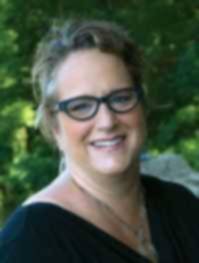2017 Workforce Summit
October 20, 2017 at Pathfinder Village

The Kennedy Willis Center, working with business leaders, and educational and non-profit partners, will host the 2017 Workforce Summit on Friday, October 20, 2017 at Pathfinder Village.
Secure online registration for the 2017 Workforce Summit is now open; registration is $45 per person, seating is limited. Credit Card payments (MasterCard/VISA) are accepted. All Summit activities will be held at the Pathfinder Gymnasium, Pathfinder Village, Edmeston, New York. The 2017 Workforce Summit will run from 8 a.m. to 4 p.m., and registration includes all Summit hand-outs and materials, coffee breaks, and a buffet luncheon.
The 2017 Human Services Workforce Summit will frame the current work environment in human services, and feature Hamdi Ulukaya, Founder & CEO of Chobani, Inc., as the luncheon keynote speaker. Presentations will be led by workforce experts Drs. Amy Hewitt and Barbara Kleist, of the University of Minnesota; John Raffaele of the National Alliance for Direct Support Professionals; and non-profit leaders including Douglas Bauer from The Scriven Foundation, and Melinda Mack of the New York Association of Training and Employment Professionals.

Hamdi Ulukaya,
Founder & CEO of Chobani
"The Summit will showcase exemplary programs that are addressing the issue of under-employment by developing viable career paths for youth and unemployed workers. It will also share innovative technologies that support people living with disabilities,” said Helen Stepowany, the director of the Kennedy Willis Center. “The Summit will cover policy development, action strategies and networking for business and community leaders, educators and health and human service agencies.”

Dr. Amy Hewitt
University of Minnesota
Supply & Demand
Recognizing and addressing unemployment and under-employment has gained increased attention nationally and regionally, as policy makers assess job losses, wage stagnation, and other factors. An overlooked workforce segment is that of Direct Support Professionals (DSPs), trained care providers who support people with disabilities and the aging in home and community settings.
With high numbers of aging Baby Boomers and GenX-ers, a growing autism population that will require long-term care, and greater life expectancies for people with developmental disabilities, the demand for qualified DSPs will grow by 60% by 2020. In New York State alone, those who have developmental disabilities who require care supports in residential and community settings now exceed 100,000 children and adults.
“This growing demand will create pathways to rewarding careers for high school graduates, second-career workers, and the unemployed, particularly for those who live in rural areas,” said Ms. Stepowany. “At present, there aren't enough trained DSPs to meet the projected needs.”

Dr. Barbara Kleist
University of Minnesota

Douglas Bauer
The Scriven Foundation
The DSP Role
Direct Support Professionals are the fastest growing segment of the U.S. workforce. However, as a career, DSPs often face the conflicting realities of low wages and increased responsibilities through regulatory changes and a growing direct needs population. Also, DSPs must retake mandated trainings and undergo redundant background checks when they change jobs or are hired by two agencies for similar care provider jobs concurrently. A recognized DSP Credential that directly leads to a full-time job in disability and health services may be a way to create a steady pipeline of qualified workers to meet demands.
A Return on Investment
Research indicates that by preparing high school students, recent graduates and others for DSP jobs, the cited employee gap can be closed and new careers will open for entry level workers. This pipeline may also lead to more efficient hiring practices and will stabilize staffing for agencies that rely heavily on direct care staff. Early vocational training should be offered in high school, so that youth may transition easily into jobs.
Formal partnerships among schools, trainers, and provider organizations may one day reduce duplicative hiring and training requirements, and place workers on-the-job more quickly. Such improvements also will result in savings that can be used to enhance direct services and care settings for those with disabilities. These programs would be of particular benefit in rural areas, where non-college bound youth struggle to access training programs and full-time employment.
To learn more, contact Helen Stepowany at the Kennedy Willis Center at 607-965-8377, ext. 117, or by email.




